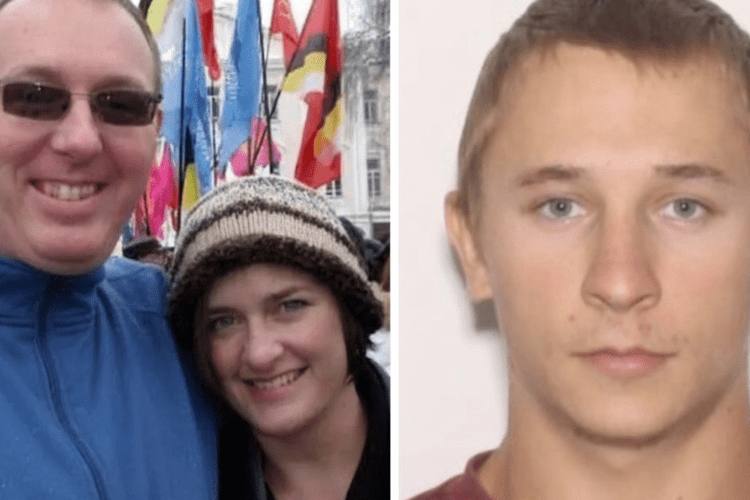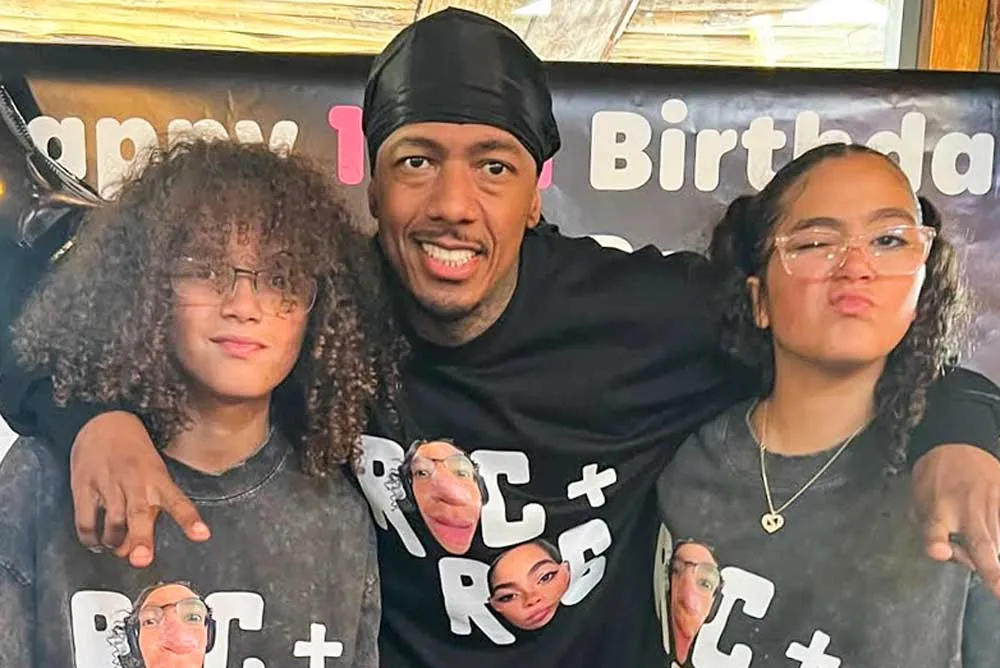From Orphaned Hope to Horrific Betrayal: Dima Tower’s Sobs Echo Through Florida Court as He’s Accused of Brutally Slaying Adoptive Parents Who Rescued Him – The Agonizing Story of Love, Rage, and a Family’s Shattered Dream
In the hushed gravity of a Sarasota courtroom, where the air hung heavy with the weight of unspoken regrets and the faint scent of polished wood, a young man’s audible sobs pierced the silence like shards of broken glass on November 12, 2025. Dima Tower, the 21-year-old Ukrainian adoptee whose life story once embodied the purest promise of American compassion, buried his face in trembling hands, his body wracked with cries that echoed off the walls and into the hearts of everyone present. It was the opening day of his first-degree murder trial, a proceeding that laid bare not just the gruesome details of the August 2023 slayings of his adoptive parents, Jennifer and Robert Tower, but the profound unraveling of a family forged from the ashes of war and abandonment. As defense attorney Marc Gilman methodically outlined the case before a jury of 12 Sarasota County peers, Tower’s breakdown disrupted the solemn rhythm, prompting Circuit Judge Thomas Krug to clear the room and issue a stern rebuke: “Mr. Tower, I won’t allow that to continue.” What followed was a five-minute recess, a moment of raw vulnerability that humanized the accused in a way no legal brief ever could—a son, once saved from despair, now accused of slaughtering the very hands that pulled him from it. For those who knew the Towers, a couple whose love knew no borders, the scene was a dagger to the soul, a heartbreaking coda to a tale that began with hope and spiraled into unimaginable horror.

To understand the depth of this tragedy, you have to trace the fragile thread back to a war-torn orphanage in Ukraine, where a boy’s eyes—wide with the quiet terror of the forgotten—first met the gaze of two strangers willing to rewrite his fate. Dima Tower was just 14 when Jennifer and Robert “Robbie” Tower, a devoted couple from North Port, Florida, spotted him during a mission trip in 2016, his slight frame huddled amid the echoes of a country still reeling from conflict. Jennifer, 51 at the time of her death, was a vibrant elementary school teacher whose classroom walls brimmed with stories of far-off lands and the power of kindness; Robbie, 49, a steadfast veteran of the U.S. Air Force, brought home the discipline of service and the tenderness of a man who fixed broken toys as readily as he mended fences. They weren’t seeking a child of their own bloodline; they were answering a calling to give a voice to the voiceless, inspired by their faith and a shared ache for the world’s overlooked. The adoption process was no fairy tale—bureaucratic mazes, cultural chasms, and the boy’s own guarded heart—but by 2017, Dima was theirs, whisked across the Atlantic to a sunlit home on Flamingo Street, where palm trees swayed like welcoming arms and the Gulf’s gentle waves promised new beginnings. Photos from those early days capture a family blooming: Dima, awkward in his first pair of sneakers, grinning beside Jennifer at a backyard barbecue, Robbie teaching him to cast a fishing line into the Myakka River, their laughter a balm against the boy’s lingering shadows.
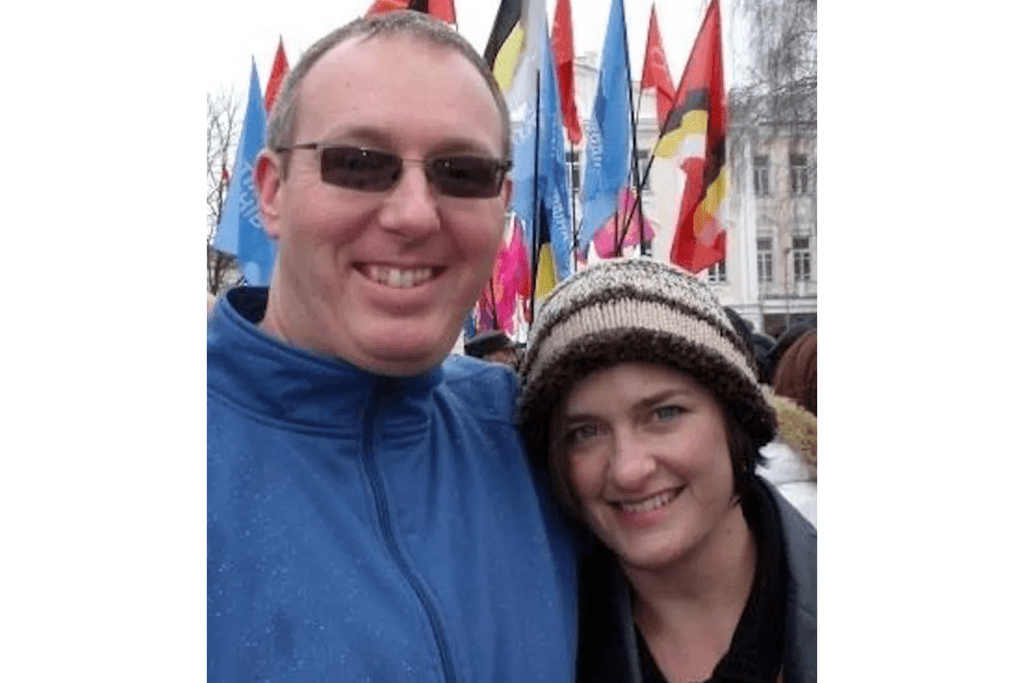
Life in North Port unfolded like a patchwork quilt of ordinary miracles—the Towers enrolling Dima in local schools, where he navigated English with a thick accent and the sting of being “the foreign kid,” yet found solace in soccer fields and sleepovers. Jennifer baked Ukrainian-inspired pierogies to bridge his past, while Robbie coached his Little League team, his booming encouragement drowning out the doubters. But beneath the surface, cracks began to form, subtle at first like hairline fractures in glass. Dima, who later described himself in a jailhouse interview as “basically a nobody coming from nowhere,” carried the invisible scars of his early years: his biological mother’s death, a family unwilling to “deal with him,” and the institutional chill of foster care in a land scarred by strife. Police reports from 2019 and 2021 paint a troubling portrait—calls to the Tower home after Dima allegedly lashed out, once assaulting Robbie in a fit of rage that left bruises and bewilderment. “He was hurting, deep down,” Robbie confided to a family friend after one incident, his voice thick with the ache of unconditional love. Yet, the Towers chose forgiveness over fracture; they sent Dima briefly to live with relatives on Jennifer’s side, a cooling-off period that ended when Robbie drove the hours to bring him home, wrapping him in a bear hug and whispering, “You’re our son, always.” Robbie’s uncle, Warren Rines, would later reflect on that mercy in a 2023 interview: “That’s how much he loved him. They forgave him for everything. They bought him a car, whatever he wanted or needed.” It was a devotion that echoed the biblical prodigal son, a testament to the Towers’ belief that redemption was not earned, but extended freely.
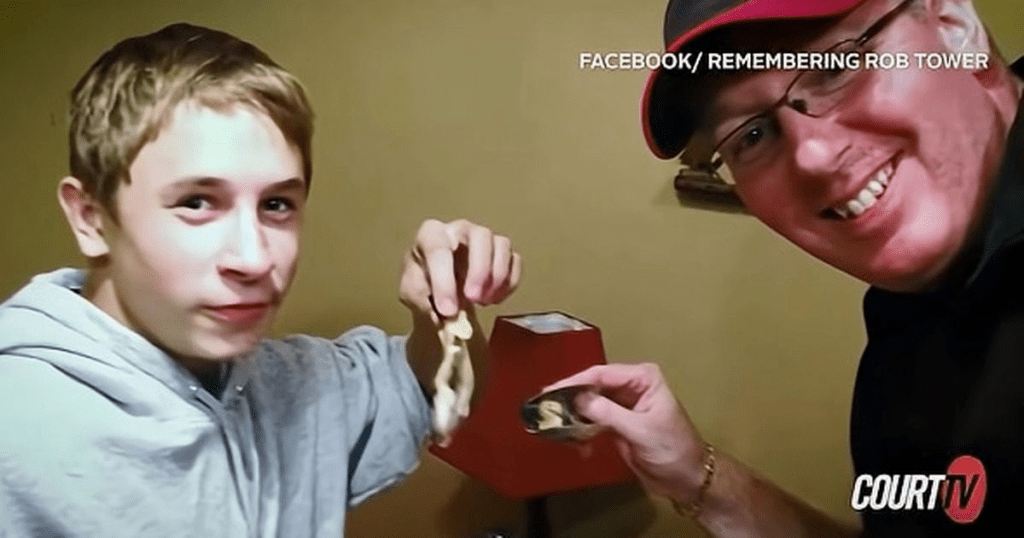
That fragile peace shattered in the pre-dawn hours of August 31, 2023, when the quiet streets of North Port awoke to screams that would haunt neighbors for years. According to prosecutors, Dima, then 19, slipped into his parents’ bedroom around 4 a.m., a steak knife gripped in his hand like a verdict unspoken. Robbie and Jennifer, asleep side by side after 25 years of marriage, stirred only in their final moments—Robbie stabbed repeatedly as he fought to shield his wife, Jennifer fleeing down the hall only to be chased, dragged back, and slain on the living room couch in a pool of her own blood. The attack was frenzied, forensic reports later revealing over 20 wounds each, their bodies found head-to-head in a tableau of desperate embrace. A neighbor, roused by the cries, dialed 911 at 4:17 a.m., her voice trembling: “I hear screaming—oh God, it sounds like someone’s dying.” Dima, bloodied and dazed, attempted a hasty cleanup—wiping counters, stuffing clothes into a washer—before fleeing in the family’s SUV. What followed was an eight-hour manhunt across Sarasota County’s backroads, sirens piercing the humid dawn as helicopters scanned the mangroves. Captured near a wooded trailhead, Dima surrendered without resistance, his confession to detectives raw and unfiltered: “Rage” had consumed him, a storm of unspoken fury that prosecutors would argue stemmed from years of simmering resentment over rules, restrictions, and the unbridgeable gap between orphan and offspring.
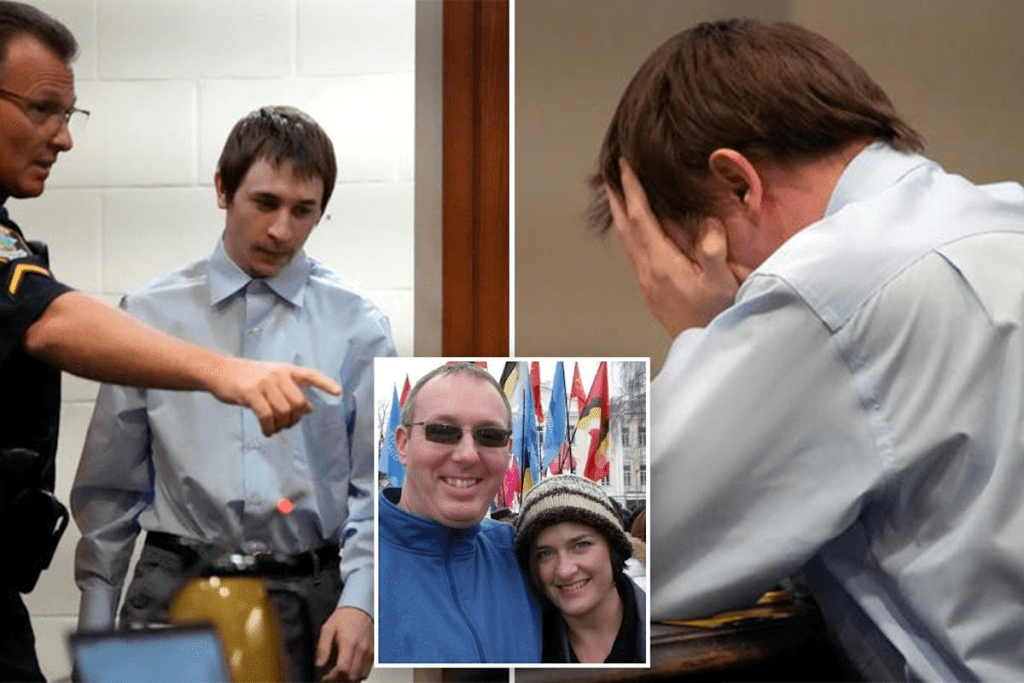
The arrests came swiftly—two counts of first-degree murder, each carrying a mandatory life sentence without parole if convicted—and the case quickly ballooned into a media maelstrom, a stark inversion of the adoption fairy tale that had once warmed hearts. North Port, a sleepy bedroom community of retirees and young families tucked between Sarasota Bay and the Everglades, reeled from the betrayal; vigils sprang up outside the Tower home, candles flickering beside photos of Jennifer’s infectious smile and Robbie’s proud salute. Friends shared stories of the couple’s quiet heroism—Jennifer tutoring immigrant kids after hours, Robbie volunteering at the local VFW, their marriage a model of enduring partnership. “They gave him everything,” sobbed a former colleague of Jennifer’s at a memorial service, her words catching like thorns: “And this is how he repaid them?” Dima, held without bond in the Sarasota County Jail, navigated the pretrial labyrinth with a court-appointed team, delays piling up from mental health evaluations to evidentiary wrangles. Diagnosed with adjustment disorder and features of oppositional defiant disorder in a 2024 psych eval, he penned letters from his cell—poignant pleas to the judge for understanding, fragments of a boy still grappling with ghosts: “I didn’t mean for it to end like this. They were my world.”
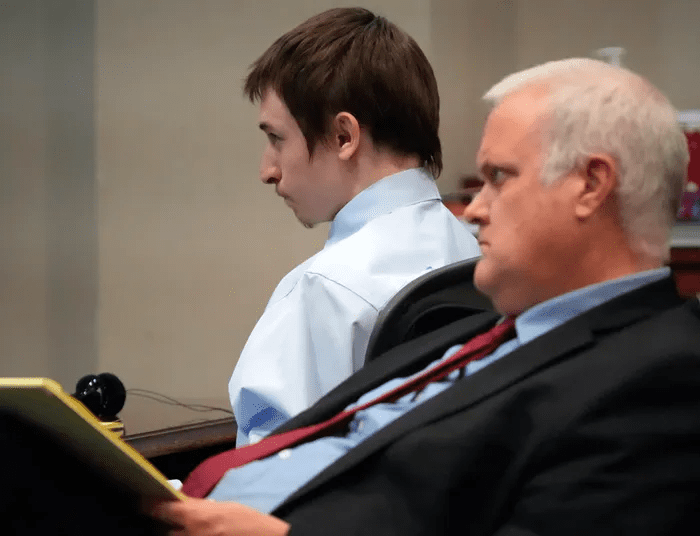
The trial’s curtain rose on November 12, 2025, in the 12th Judicial Circuit Court, a nondescript brick building where justice unfolds amid fluorescent hum and the occasional creak of wooden benches. Prosecutor Liana Whipple, a seasoned Sarasota litigator with a reputation for unflinching precision, delivered the state’s opening with the steady cadence of certainty: Dima’s “rage” that morning was no impulse, but a premeditated purge, evidenced by the second knife fetched mid-attack and the calculated cleanup. “He slaughtered them in their sleep,” Whipple told the jury, her voice a measured thunder, painting a scene of cold calculation that chilled the room. But it was Gilman’s response that cracked the facade, his address a masterful blend of concession and compassion. “This trial is going to be different,” Gilman began, his tone gentle yet grave, acknowledging from the outset that Dima was the assailant—no denials, no diversions. “My client is not innocent of anything.” As he delved into Dima’s fractured past—the orphan’s isolation, the adoptive clashes, the unhealed wounds of displacement—the young man unraveled. Sobs turned to heaving gasps, Kleenex crumpled in his fists, his broad shoulders shaking under the weight of words that stripped him bare. The jury, a cross-section of teachers, mechanics, and moms, shifted uncomfortably, some averting eyes as Gilman’s narrative tugged at universal threads: the pain of not belonging, the fury of feeling unseen. “They were caring parents,” Gilman conceded, his voice softening like a eulogy, “but consider the rage of a boy who never truly felt at home.”
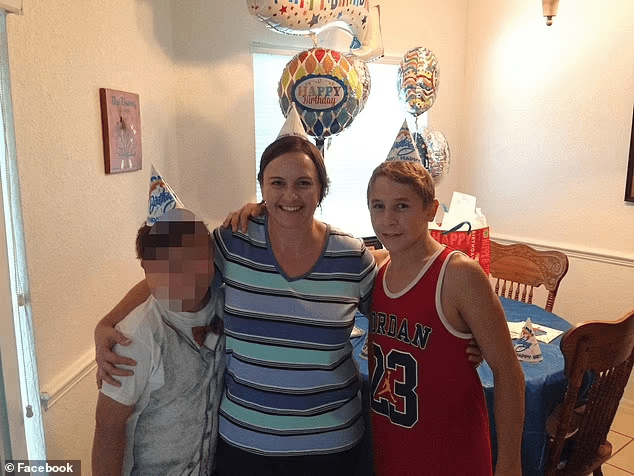
Judge Krug’s intervention was swift, a gavel’s echo underscoring the courtroom’s fragile decorum. Excusing the panel with a nod, he turned to Dima, his reprimand firm but fatherly: “It had got to the point the defendant, in crying and using Kleenex, was disrupting the jury trial.” The break stretched to 10 minutes, whispers rippling through the gallery as deputies offered water and a social worker’s quiet counsel. When proceedings resumed, Gilman pivoted to mercy, urging the jury to parse premeditation from passion, second-degree murder or manslaughter from the capital charge that loomed like a life sentence. “Look at the evidence,” he implored, “and see a broken young man, not a monster.” The prosecution, undeterred, promised a timeline of texts and timestamps painting premeditation—Dima’s late-night searches for “how to kill someone quietly,” his post-attack flight a bid for freedom, not flight from fear. Witnesses queued in the wings: the 911 caller, whose frantic plea captured Jennifer’s final gasps; the detective who coaxed Dima’s confession amid the mangroves’ hush; even Rines, Robbie’s uncle, whose testimony would blend grief with grace: “They loved him like their own blood. That’s the hardest part.”
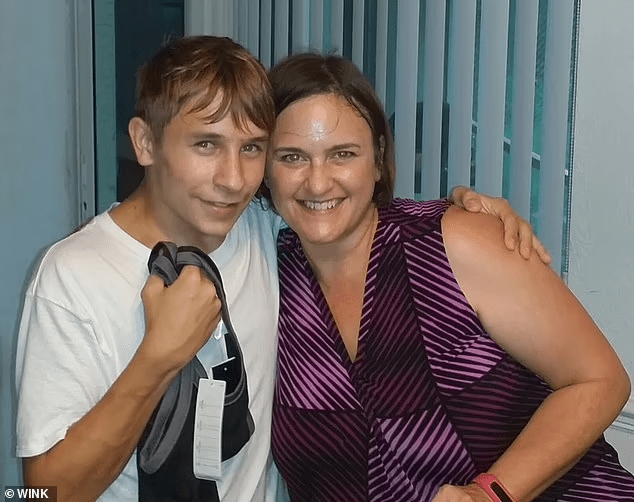
As the trial stretches into its second week, Sarasota pulses with the quiet ache of a community wrestling with its own reflections. North Port’s annual holiday parade, once a Towers tradition with Jennifer’s elf hat and Robbie’s Santa beard, now marches in their memory, floats draped in blue ribbons for justice. Supporters of Dima— a small cadre of Ukrainian expats and mental health advocates—gather outside the courthouse with signs reading “Trauma Isn’t a Trial,” their pleas a counterpoint to the victims’ families’ silent vigil. For the Towers’ kin, scattered from Florida’s coasts to New England’s shores, the proceedings are a marathon of mourning, each day a fresh wound reopened. Rines, speaking to reporters after the opening, wiped tears with a calloused hand: “Robbie would want us to pray for that boy, even now. But God help us all.” It’s this bittersweet tension—love’s endurance amid loss’s lash—that elevates the case beyond headlines, a poignant parable on adoption’s double helix: the joy of chosen family, the jeopardy of unhealed hearts.
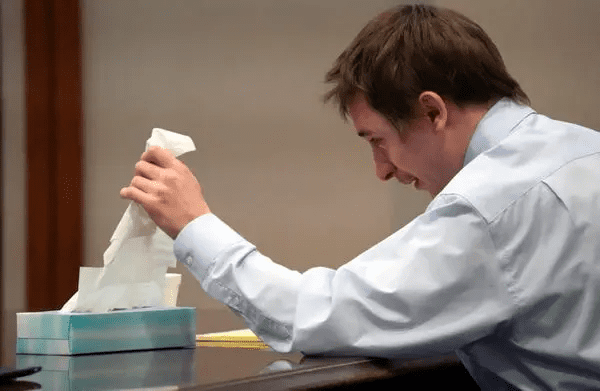
In the courtroom’s unforgiving light, Dima Tower sits shackled not just by steel, but by the ghosts of what might have been—a soccer scholarship scouted, a college dorm decorated, the Towers beaming at graduation. His breakdown wasn’t theater; it was the boy from the orphanage surfacing, adrift in a sea of accusations. As evidence mounts and verdicts loom, Sarasota holds its breath, not for drama, but for dignity—for Jennifer’s laugh lines etched in memory, Robbie’s steady hand on a steering wheel, and a son’s sobs that remind us: even in the darkest trials, humanity clings like morning dew to dawn. Whatever the jury decides, the Towers’ legacy endures—not in vengeance, but in the vast, forgiving love that defined them, a beacon for every family chasing the fragile dream of forever.
